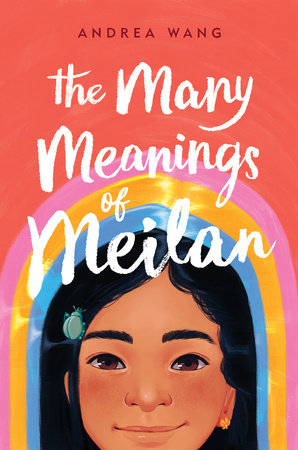The Many Meanings of Meilan
Andrea Wang
Penguin/Kokila, 2021
353 pages
Grades 5-8
Realistic Fiction
Meilan's extended family owns and operates a bakery in Boston's Chinatown. When the grandmother dies, the family starts squabbling and distrusting each other. It is decided to sell the bakery and Meilan, her parents, and her grandfather hit the road, visiting friends, eventually landing in a small town in the Midwest. Meilan's father gets a job baking in a small cafe and she must start school as the only Asian student where she knows no one. Meilan misses her cousins and the smell of the bakery. She hates starting over with the unfamiliar and sometime hostile attitudes of classmates and even school administration. The vice principal refuses to use her real name, instead calling her the Americanized "Melanie". When the school hosts an assembly for veterans, Meilan would like to invite her grandfather. The problem is that he was a soldier in Hong Kong. Would he still be welcome to participate? Meanwhile, her grandfather is also struggling to find his place in the new town and misses his late-wife. Eventually, Meilan makes a friend-but can she fully trust him?
Wang turns from the celebrity of her award winning picture book, Watercress, to try her hand at middle grade with great results. Children of all cultures will relate to trying to fit into a world where you don't think you are welcome. Meilan feels as if she has lost her whole family and the security of her certain life and now is a "fish out of water" and has even lost her name. The name "Meilan" has many meanings and she tries them all out, finally realizing that they are all part of the whole and, because her grandparents were the ones to pick the name, always connected to family. Some disturbing anti-Asian events happen within the book, making the title timely, yet may upset sensitive readers. Meilan find friends and adult support and eventually the courage to reclaim her identity and heritage. Though mostly a quiet story, there are moments of great action, ending with a climatic tornado. Young readers will hopefully become more intune to the needs of new classmates, kids who are in transition will see that they aren't alone, and teachers will see the importance of correctly learning their students' names, even if it is awkward or hard. Wang shows us that our stories and our names represent who we are and make a difference.

No comments:
Post a Comment